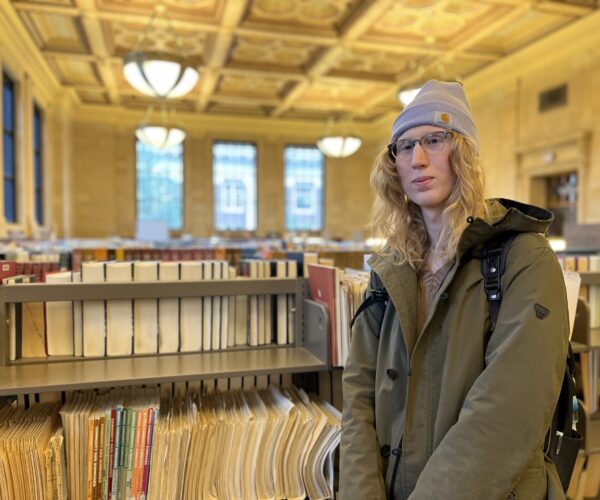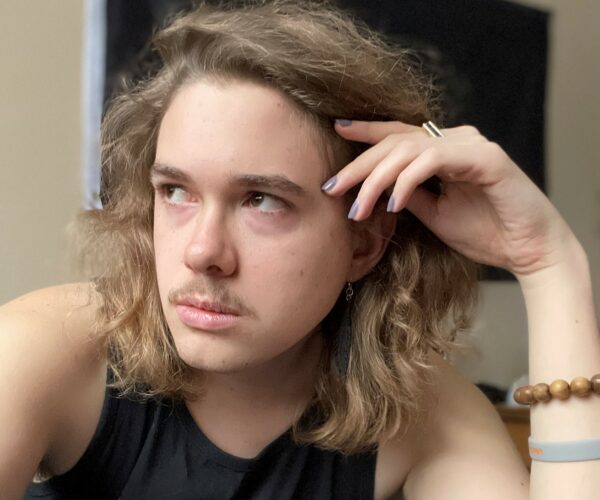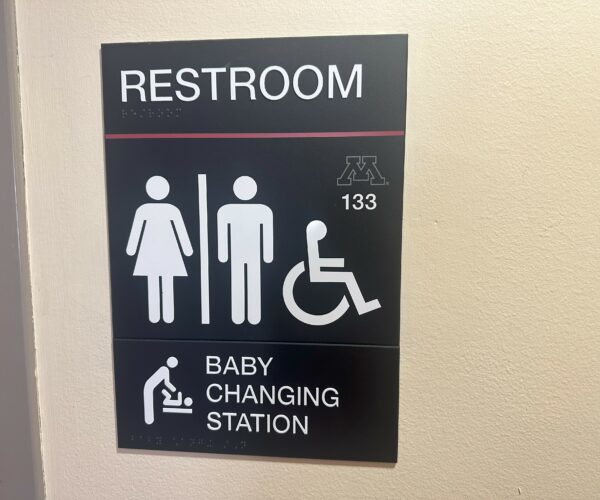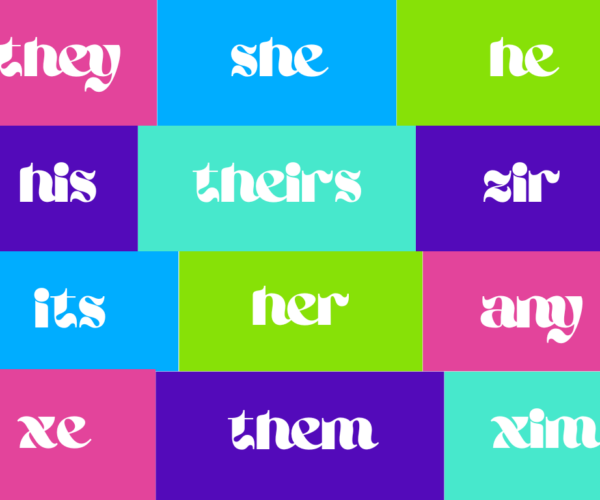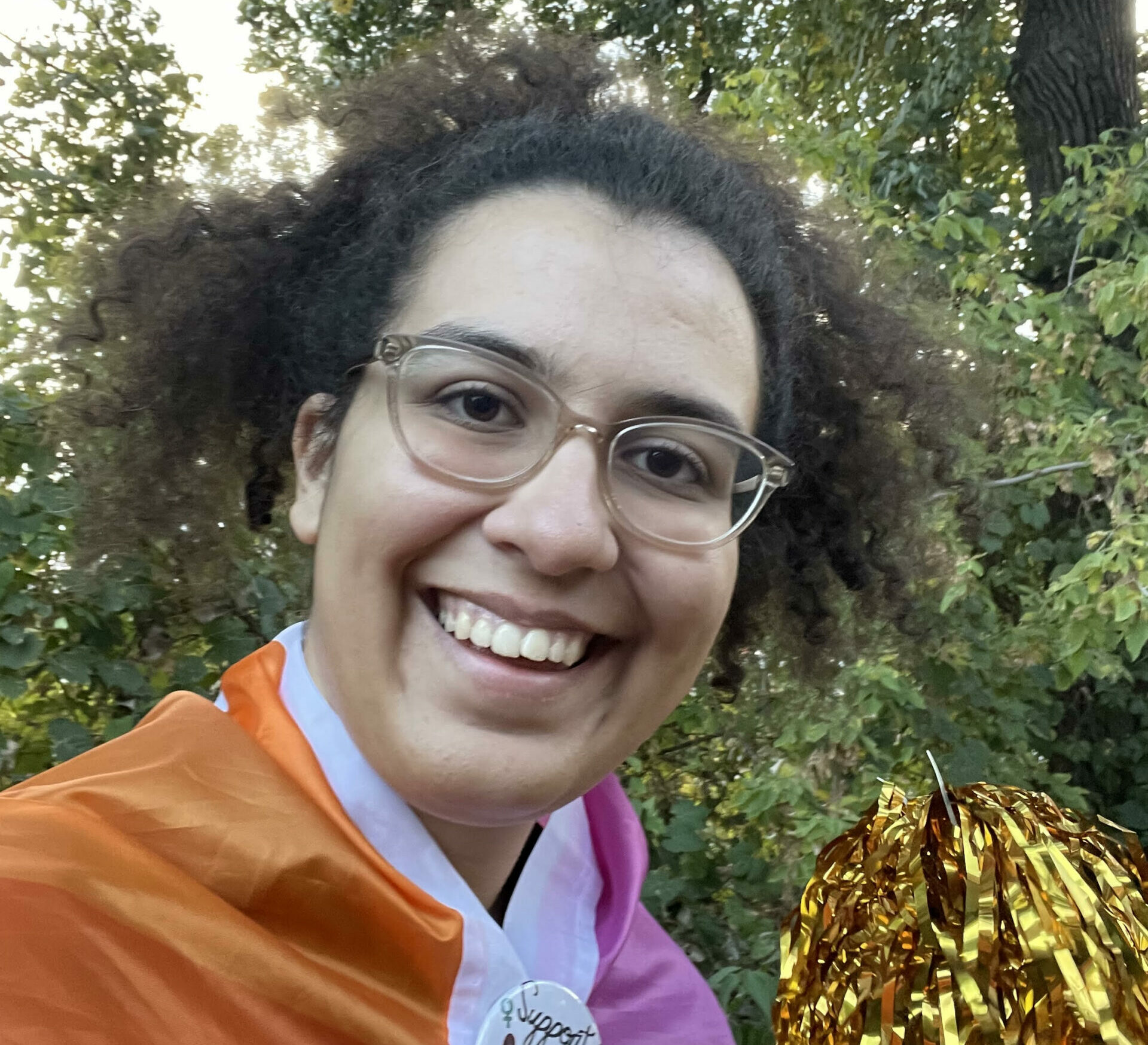Jessica Jabbar, 20, is a senior at the University of Minnesota studying developmental psychology with a minor in family violence prevention. Jabbar is a lesbian woman and uses both she/her and he/him pronouns because it’s “a presentation thing” to describe her relationship with femininity.
“My mom, who is a [film] director, was talking with a fellow person in the film industry who was queer. And so she saw this person, she decided she would ask them all the silly questions about queerness that she didn’t want to bother me with, and then she told me about her conversation with this person.
And some of it was how the person she was talking to didn’t necessarily have the support from their parents that I’m able to have with my mom. And it made me happy being reminded of that because it took a little bit for my mom to come around, but I’m very happy that I can talk to her about being a lesbian and whatnot with no worries. I feel like I’m very lucky to have that.
I [also] have a lot of online [Discord and Twitter] friends who are also queer. So just these little little bubbles of friend groups where most everyone is queer. It’s less of a big community and more like little bubbles of people that I find and connect with. It’s mostly the things that we talk about are based on how that we met.
There’s one group of people that I met through a roleplay server where we make characters and we roleplay them. And so a lot of my conversations with those people are geared toward that kind of creation. I grew up in a country [Egypt] where queerness is basically illegal, and so having that kind of access to information, and even more support was that was very helpful for me.
I’ve been on and off working within the [QSCC]. I was a previous facilitator for the group neuroqueers. At some point, I was the representative for the meetings with the Student Health Advisory Committee. I can’t really do either of those anymore just because of time constraints, but I like being able to help out that community, especially because I didn’t have basically any queer friends in real life before I came to the University. I made a lot of friends through the [QSCC].”
This interview has been edited for style, length and clarity.
Interview conducted by Maia Irvin.
